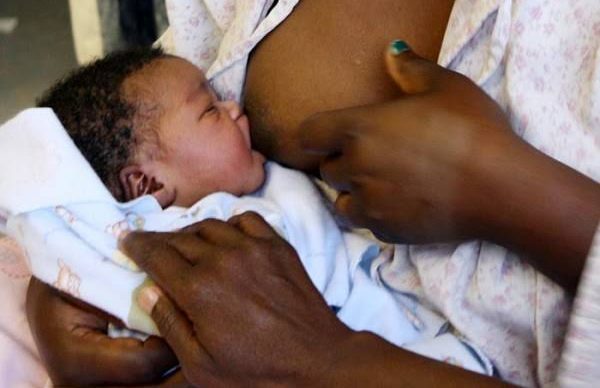The United Nations Children’s Fund (UNICEF) has expressed concern over stagnating exclusive breastfeeding rates in Nigeria, which remain at just 29 per cent.
This is contained in a statement issued on Friday in Abuja to commemorate World Breastfeeding Week (WBW), observed globally from August 1 to 7 each year.
The theme for the 2025 celebration, “Prioritise Breastfeeding: Create Sustainable Support Systems,” underscores the critical role of breast milk in child survival, growth, and healthy development.
According to the statement, while more than 90 per cent of mothers in Nigeria breastfeed, the rate of early initiation of breastfeeding has declined, from 42 per cent in 2018 to 36 per cent in 2023.
UNICEF noted that data from the 2023–2024 National Demographic and Health Survey (NDHS) revealed troubling trends in optimal breastfeeding practices.
“Only 23 per cent of babies are breastfed up to the recommended age of two years.
“Just 12 of Nigeria’s 36 states, including the Federal Capital Territory, currently offer paid maternity leave for up to six months,” the statement said.
The statement highlighted that breast milk was not only natural but also the most complete source of nutrition for infants.
“It contains antibodies that protect children from illnesses, improves cognitive performance, and reduces the likelihood of obesity in later life.
“For mothers, breastfeeding lowers the risk of certain cancers and Type 2 diabetes. It is also a climate-smart, sustainable, cost-effective, and zero-waste method of feeding infants.
“In spite of these benefits, breastfeeding remains under-supported and often misunderstood in many settings,” UNICEF added.
To reverse the negative trend, UNICEF emphasised the need for mothers to be supported at home, in healthcare facilities, and at work.
The agency recommended initiating breastfeeding within the first hour of birth, exclusively breastfeeding for the first six months, and continuing breastfeeding with complementary foods up to at least 24 months.
UNICEF Nigeria Country Representative, Wafaa Abdelatef, reiterated the importance of breast milk to child development.
“Breast milk is central to child survival. We all have a role to play in supporting mothers to breastfeed effectively.
“This World Breastfeeding Week, we urge every level of government, every workplace, and every community to build lasting support systems so that no mother lacks the encouragement or resources she needs.
“Let us mark this week not just with words, but with action,” she said.
The statement also renewed the Federal Government and UNICEF’s joint call to prioritise breastfeeding through sustainable support systems nationwide.
Referencing the Nutrition 774 Initiative, UNICEF called on policymakers, employers, healthcare workers, civil society, and communities to collaborate in promoting breastfeeding.
It also urged that health workers be equipped with adequate tools and training to support breastfeeding mothers.
“Let us extend paid maternity leave to six months across all states in Nigeria and champion breastfeeding as a smart national investment that protects every Nigerian child’s right to adequate nutrition,” the statement added.
World Breastfeeding Week has been celebrated annually since 1992. In 2018, the World Health Assembly endorsed WBW as a key global strategy for promoting breastfeeding.







